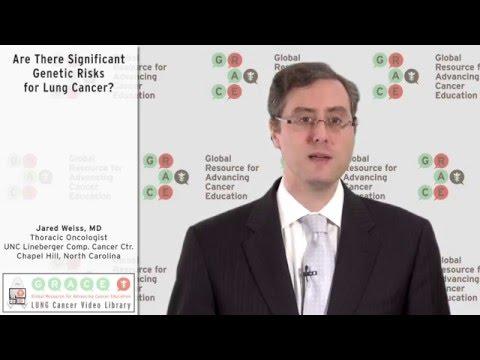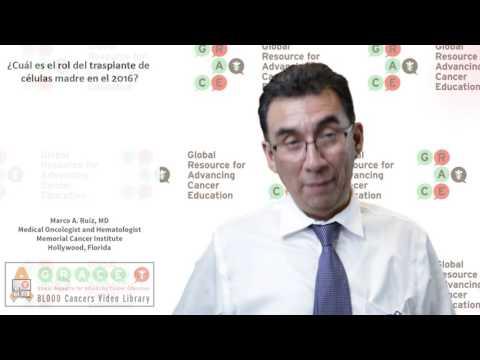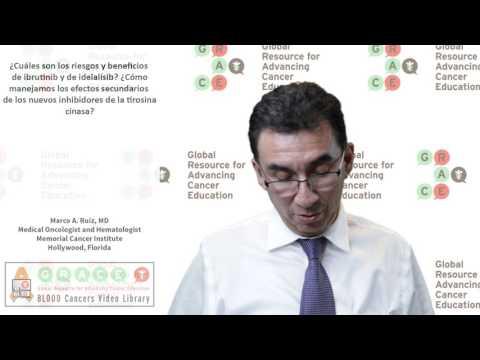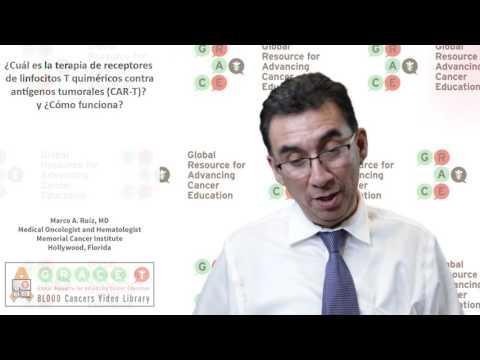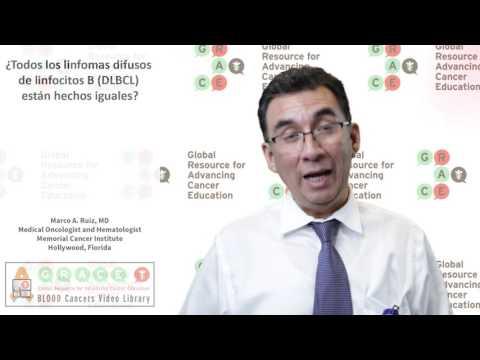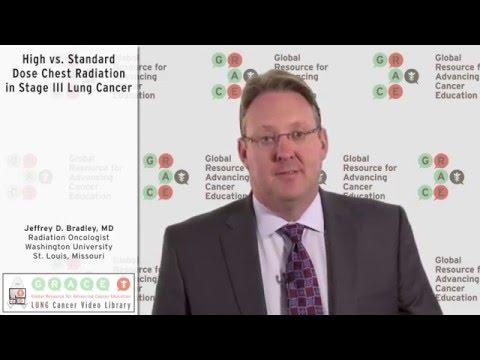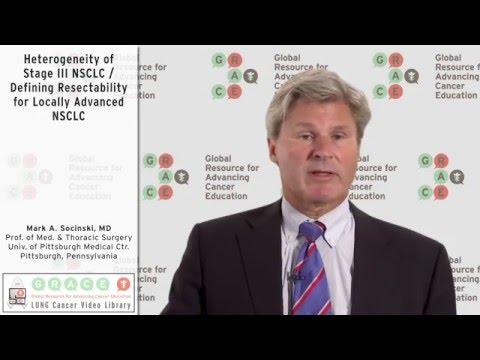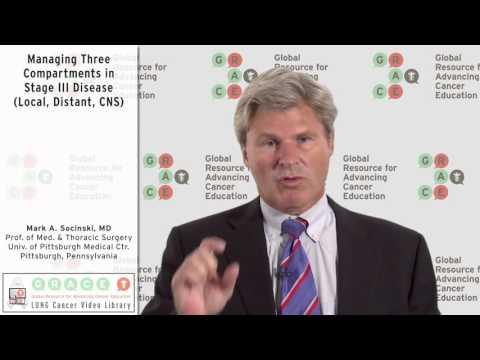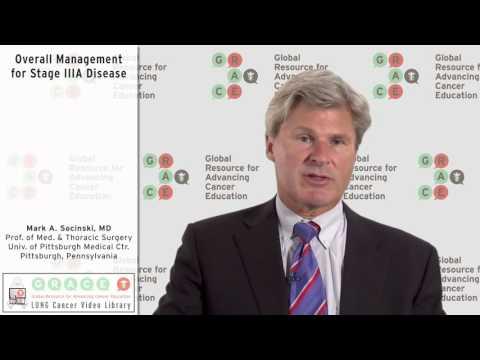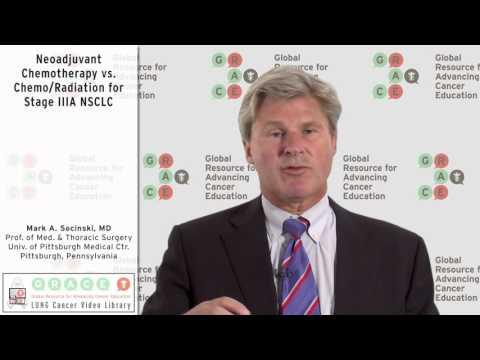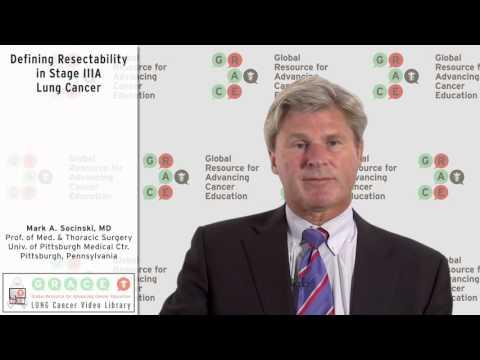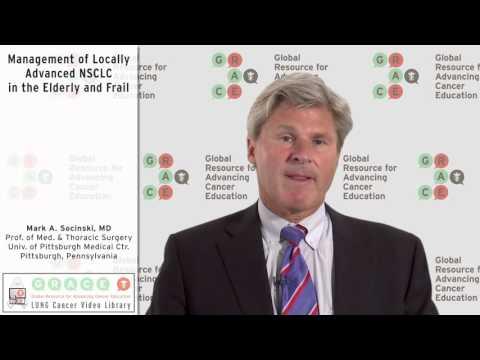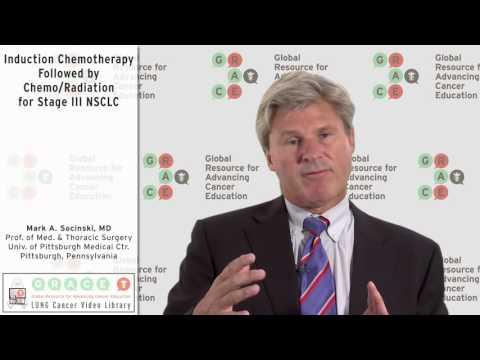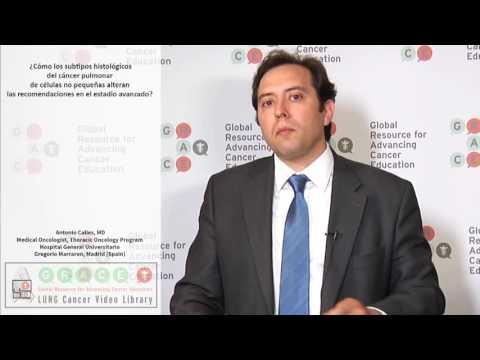Dr. Jared Weiss, UNC Lineberger Comprehensive Cancer Center, discusses the genetic risk (or lack thereof) for lung cancer.
Video Library
Search the Video Library
Video Language
Filter by Cancer Type:
Displaying Results 1 - 15 of 55
For this series, GRACE sat down with Marco Ruiz, MD, an oncologist at Memorial Cancer Institute specializing in hematologic or blood cancers, including leukemia, lymphoma, myelodysplastic syndrome (MDS) and myelofibrosis. He is also an experienced bone marrow transplant specialist and is active in
For this video on the risks and benefits of Ibrutinib Idelalisib, GRACE sat down with Marco Ruiz, MD, an oncologist at Memorial Cancer Institute specializing in hematologic or blood cancers, including leukemia, lymphoma, myelodysplastic syndrome (MDS) and myelofibrosis. He is also an experienced
GRACE sat down with Dr. Marco Ruiz to discuss information regarding the chimeric T cell receptors treatment against tumoral antigens (CAR-T) and how it works (¿Cuál es la terapia de receptores de linfocitos T quiméricos contra antígenos tumorales (CAR-T)? y ¿Cómo funciona ?). Stay tuned for more on
GRACE is pleased to present updates in blood cancer treatments for our Spanish Blood Cancer Library with Dr. Marco Ruiz. Dr. Ruiz shares information regarding Chronic Lymphocytic Leukemia & Non-Hodgkin Lymphoma, (Leucemia crónica linfocítica y linfoma no Hodgkin)., specifically "Are all diffuse
Dr. David Harpole, Duke University Medical Center, describes how he assists patients with the surgical decision-making process.
Dr. Jeffrey Bradley, Radiation Oncologist at Washington University in St. Louis, provides trial evidence showing that patients may not benefit from high dose chest radiation therapy vs. standard dose therapy.
Dr. Mark Socinski, University of Pittsburgh Medical Center, describes the different types of stage III (locally advanced) NSCLC, and states which of these types tend to be resectable.
Dr. Mark Socinski, University of Pittsburgh Medical Center, defines the three compartments in stage III (locally advanced) NSCLC, each of which must be treated.
Dr. Mark Socinski, University of Pittsburgh Medical Center, describes the primary treatment options for stage IIIA NSCLC, including chemoradiation and surgery, and discusses trial evidence for each approach.
Dr. Mark Socinski, University of Pittsburgh Medical Center, compares the use of chemotherapy to chemo/radiation in the preoperative setting in stage IIIA lung cancer.
Dr. Mark Socinski, University of Pittsburgh Medical Center, discusses the factors to consider in defining resectability in stage IIIa lung cancer.
Dr. Mark Socinski, University of Pittsburgh Medical Center, describes strategies for treatment of the elderly and frail patient with locally advanced NSCLC.
Dr. Mark Socinski, University of Pittsburgh Medical Center, discusses the benefits of giving two additional cycles of chemotherapy in combination with radiotherapy for stage III NSCLC.
For our third video in the GRACE Spanish Lung Cancer Library, Antonio Calles, MD, Medical Oncologist, Thoracic Oncology Program, Hospital General Universitario, Gregorio Marraron, Madrid, Spain joined GRACE to discuss how NSCLC subtype (histology) can alter chemotherapy recommendations in advanced

